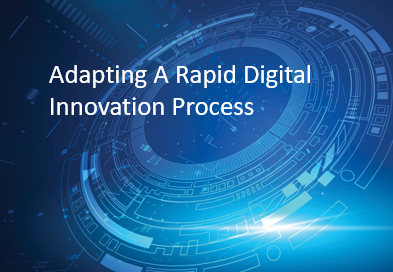 As we start to think about the next year, (is it here already?) it is a time of reflection and some forward thinking. We do need to make some real changes.
As we start to think about the next year, (is it here already?) it is a time of reflection and some forward thinking. We do need to make some real changes.
From my standpoint, I am simply amazed at how the world seems to be spinning faster and faster. I am convinced my working days are shorter or the clock is moving faster or worse still, I am being “deflected” even more by everything “digital”.
I never seem to finish what I had intended to complete by the end of a day or week. I then get caught up in the spillover effect. Something always gets in the way, something has to give. So we make a resolution to change something to improve on this constant catch up state we find ourselves in. We all seem to be spinning faster but equally slowing down. Often our innovation activities face the same dilemma.
Innovation needs time, it needs evolution and resolution but also speeding up
Here are some thoughts for our future. The need for innovation results has sped up considerably. The belief that lean management principles will get the innovation out of the door quicker, has been one of those management adoptions that often trick us into believing we are achieving more than we actually are. Reality is, we have only been tackling part of the innovation process and the end results often remain the same – a slow process of innovation follows as lean hits organization reality, it gets caught up in internal roadblocks, countless discussions, and debates.
Certainly, in the majority of cases we have found nothing wrong at all with applying lean management, as it tends to lead to improvements in a final outcome, but does it actually speed up the process? I’m not sure it does. Leans slows down and becomes increasingly burdened by fat being layered on, further down the innovation execution process.
For me, I think the real need is in speeding up of the whole innovation process, approaching the whole innovation in a systematic way, as the only path to tread in the years ahead. We need to broaden out the whole process of rapid innovation application beyond the two current favorites of lean and design thinking. That requires it to be fully connected up and that means making the innovation process one that is fully digital, on a platform and accessible by all, those that can bring value and meaning to the process to deliver greater innovation outcomes. We need a greater innovation rapid prototype approach to the whole innovation process- test, learn, adapt, adjust, iterate, refine at speed and rapid scaling.
Continue reading “Adopting a Rapid Digital Innovation Process”
 The report from Arthur D Little “Innovating in the digital age- a cross-industry exploration” has to be the one report that really stands out for me from this year. I highly recommend it. They take a look at how digital technology will transform the way innovation will be managed in the future.
The report from Arthur D Little “Innovating in the digital age- a cross-industry exploration” has to be the one report that really stands out for me from this year. I highly recommend it. They take a look at how digital technology will transform the way innovation will be managed in the future.
